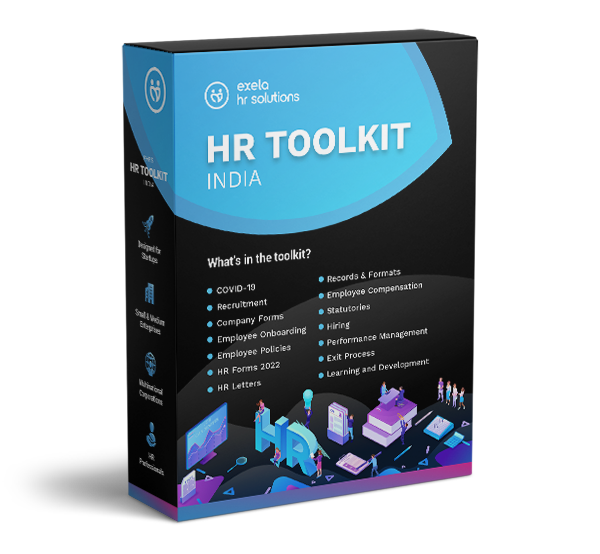
The past decade has witnessed a ground-breaking technological revolution, reshaping the very fabric of the modern workplace. Among these ingenious advancements is the advent of Robotic Process Automation (RPA), powered by the remarkable capabilities of Artificial Intelligence (AI) and Machine Learning (ML). Today, what used to take weeks to accomplish can be achieved in mere minutes, propelling businesses into a realm of unprecedented growth and scalability. While opinions may vary on the transformative impact of these cutting-edge tools on the business landscape, one fact remains indisputable: automation is here to stay!
However, despite the worthy hype, many find these new technologies a threat to their jobs.
Rise of the Robots: Will AI Take Your Job?
Jobocalypse: How AI Is Threatening Job Seekers
Such attention-grabbing headlines often evoke anxiety in both job seekers and HR professionals. Are AI and automation indeed just a step away from snatching away our jobs? Probably not! But we can't ignore the fact that we are undoubtedly moving towards a more automated future and witnessing significant transformations in the workplace. And to thrive in this competitive market, we must stay ahead of the curve. And so must HR professionals! Automation has firmly established itself as an indispensable force destined to shape the future of industries across the globe. To stay ahead of the ever-changing landscape, HR professionals must proactively embrace automation to streamline operational tasks, allowing more time for strategic and visionary thinking. While automation undoubtedly brings advantages in areas like payroll and time tracking, it also extends its benefits to other labor-intensive and repetitive HR functions. HR teams can optimize outcomes by identifying areas of redundancy and human error and exploring technological solutions. As we all are heading to a more competitive era, we must acknowledge what the future of HR holds and how automation can be a game-changer for HR endeavors. Here's everything you need to know.
Future of HR: Automation
In today's business landscape, the traditional roles within HR teams, which were responsible for onboarding new clients or employees, are being transformed by the emergence of RPA tools. With the aid of these advanced technologies, organizations can now automate numerous HR functions and tasks. Instead of relying on extensive teams to handle diverse HR responsibilities, businesses are turning to Human Resource Management Systems (HRMS) to streamline their processes. HR automation tools have revolutionized various aspects of HR management, encompassing payroll processing, employee benefits administration, and more. By leveraging these tools, valuable time is liberated for employees to focus on tasks directly impacting the business's revenue and success. Additionally, specific software solutions aid in tax filing, compliance management, and identification of eligible tax credits, ensuring organizations maximize their qualifications. Moreover, advanced automation tools employ specific algorithms tailored to each organization, effectively managing data networks, identifying problems, and facilitating informed decision-making within internal management.
Integrating HR automation tools has opened up new possibilities for efficient and data-driven HR management, empowering businesses to optimize operations and drive sustainable growth. That being said, it is clear that the future of HR holds tremendous potential for growth.
Also Read: 7 Cost-Effective Recruitment Tips for Your Business
The benefits of HR automation
HR automation has revolutionized how human resource departments operate, bringing numerous benefits to organizations. By automating repetitive and time-consuming tasks such as payroll processing, benefits administration, onboarding, and performance management, HR professionals can save valuable time and allocate their resources more efficiently. This technology-driven approach improves accuracy, reduces errors, enhances data security, and allows HR teams to focus on strategic initiatives that drive employee engagement, productivity, and overall business success. Here are a few benefits of HR automation.
-
Eliminate tedious administrative tasks.
A majority of companies (56%) employing AI in their HR operations aim to automate repetitive tasks.
By integrating AI cognitive capabilities with robotic process automation, HR processes can witness significant enhancements, primarily by eliminating time-consuming administrative tasks. By automating processes such as data entry, document management, and repetitive administrative workflows, HR professionals can free up valuable time that can be redirected towards more strategic and value-added activities. This increases productivity and efficiency within the HR department and allows HR professionals to focus on critical tasks like talent acquisition, employee development, and strategic workforce planning. By reducing the burden of administrative work, HR automation empowers organizations to maximize their resources and drive remarkable business outcomes.
-
Maximize your hiring success
A majority of companies, precisely 57%, have expressed their intention to expedite the recruitment process.
Conventional recruitment methods have become outdated and ineffective in today's rapidly evolving HR landscape. And thus, organizations are increasingly moving toward incorporating new intelligent technologies.
75% of companies have expressed their intention to incorporate innovative technologies as a means to attract and retain highly skilled employees. 62% of organizations plan to focus on recruiting individuals who possess the ability to work with incredible speed and efficiency.
By leveraging automation tools and technologies, organizations can streamline and optimize their hiring processes, leading to better outcomes in candidate selection. Automated applicant tracking systems (ATS) can efficiently handle job postings, resume screening, and candidate evaluation, ensuring that qualified candidates are identified and progressed through the hiring pipeline. This reduces manual effort, minimizes the risk of human bias, and improves the overall efficiency and effectiveness of the hiring process. HR automation empowers organizations to attract top talent, enhance the candidate experience, and ultimately make more informed and successful hiring decisions.
-
Accelerate and streamline employee onboarding
Companies using automation report 67% faster onboarding.
HR automation simplifies and centralizes onboarding by digitizing paperwork, such as employment contracts, tax forms, and benefits enrollment. This eliminates the need for manual data entry, reduces errors, and ensures compliance with legal requirements. New employees can conveniently complete and submit necessary documents electronically, eliminating the need for printing, scanning, and physical paperwork.
Automation also enables HR teams to set up automated workflows and notifications, ensuring that all necessary steps are completed on time. From provisioning IT access to scheduling orientation sessions and training, HR automation provides a seamless onboarding experience.
-
Realizing time and cost benefits
Incorporating automation solutions can yield notable cost savings by minimizing administrative tasks and paperwork associated with HR processes. This enhances operational efficiency and allocates resources for more strategic HR endeavors.
Research reveals that 69% of HR professionals who adopted automation in their recruitment process observed substantial time reductions in this area.
-
Enhanced decision-making
Harnessing the power of HR automation systems provides organizations with precise and reliable data, enabling them to make well-informed decisions regarding recruitment, performance appraisals, and policy adjustments. By leveraging data-driven insights, HR managers can identify meaningful patterns in employee performance and engagement, facilitating the development of more effective internal strategies.
An overwhelming 72% of businesses have expressed their intention to invest in HR automation tools within the coming three years.
Organizations proactively embracing automation in HR business practices will undoubtedly gain a significant competitive advantage in the dynamic business landscape.
Conclusion
The transformative power of automation is reshaping the future of HR. As technology evolves and advances, organizations must adapt to stay ahead of the curve. By embracing HR automation, businesses can revolutionize their processes, streamline operations, and unlock new levels of efficiency and productivity. Automation is changing the game, empowering HR professionals to focus on strategic initiatives, enhance employee experiences, and drive sustainable success. Embrace the future of HR automation, and unlock the full potential of your organization. The possibilities are limitless.
Exela HR Solutions is a leader in providing best-in-class HR services to organizations looking to thrive in the modern business landscape. We at Exela HR Solutions empower organizations to embrace the power of automation and get the best out of it. With self-service portals and data-driven insights, our experts believe in maximizing efficiency and employee experiences. Businesses can focus on core competencies while leveraging the power of automated HR services for sustainable growth.
Talk to our experts at Exela HR Solutions today to gain more insights!
DISCLAIMER: The information on this site is for general information purposes only and is not intended to serve as legal advice. Laws governing the subject matter may change quickly, and Exela cannot guarantee that all the information on this site is current or correct. Should you have specific legal questions about any of the information on this site, you should consult with a licensed attorney in your area.





